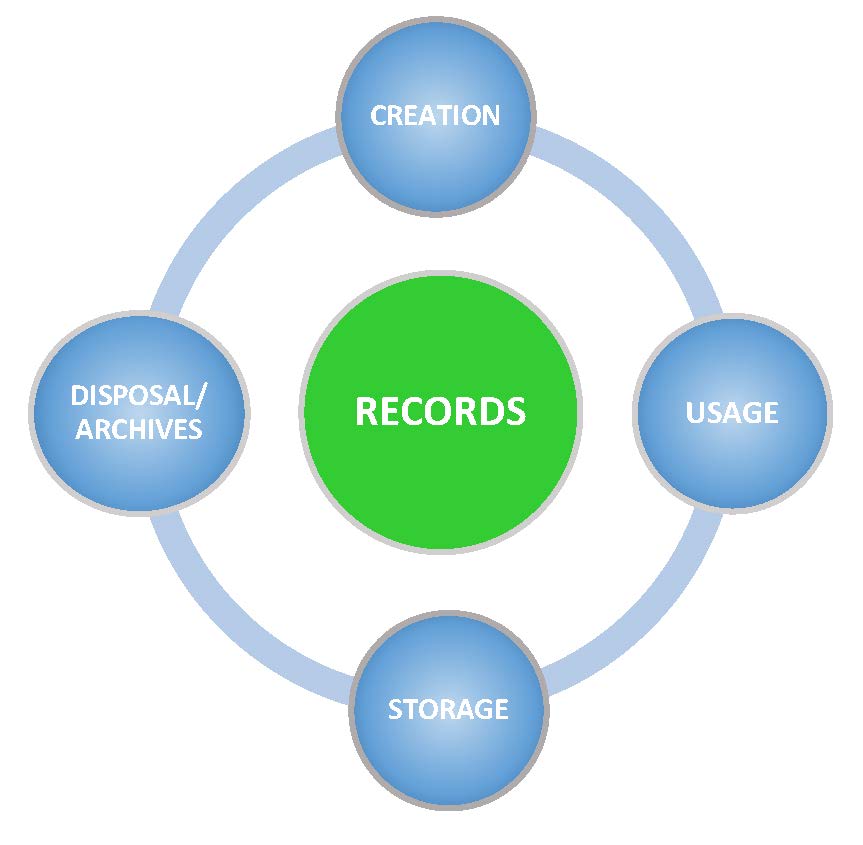What is Records Management
Florida’s Public Records Law is one of the most open public records laws in the country, and is a model for other states. Florida has had some form of a public records law since 1909, and is recognized nationally for the leadership role taken regarding public records and accessibility to public information.
The primary concern of records management is the efficient, effective, and economical management of public records and information. Proper records management ensures that information is available when and where it is needed, in an organized and efficient manner, and in an appropriate environment.
Records management seeks to manage and control records throughout their life cycle, from their creation and distribution, through their filing and usage, to their storage, and ultimately to their final disposal or archives, or permanent retention.

Benefits of Records Management
Proper records management is something that all Universities need. Although it may take considerable amounts of time and energy to develop the proper system and gather dedicated resources needed to maintain the system over time, there are many benefits to a well-run Records Management Program (Adapted from the State of Florida and from the Ten Business Reasons for Records Management Information and Records Management Document-based Information Systems, Robek, Brown, Stephens, 1995.):
-
Space savings
Toggle More Info -
Cost savings
Toggle More Info -
Increased efficiency
Toggle More Info -
Controlled creation and destruction of records
Toggle More Info -
Minimized litigation risk
Toggle More Info -
Preserving institutional memory
Toggle More Info -
Protection of vital records
Toggle More Info
Disposition of Records
Disposition of records can include transfer of records to another department or individual, sending the records to the University or state archives, or securely disposing of the records through shredding, electronic deletion or migration to another software system. Keep in mind, that a Record Copy must be retained in accordance with the state of Florida Retention Schedule.
Below are some additional items to keep in mind when disposing of record
-
Record Copies
Toggle More Info -
Duplicate Copies
Toggle More Info -
Restricted Data
Toggle More Info

